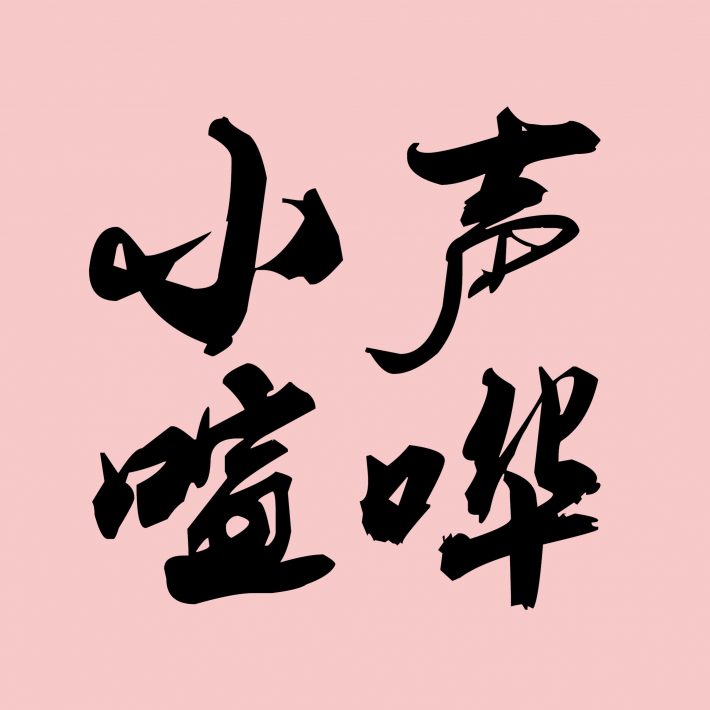BY AFRA WANG
Growing up in China in the early 2000s, my friends and I were extensively influenced by United States pop culture.
I was an outstanding fourth grader who was obedient and valued reading and writing. I was the student who performed the weekly speech under the National Flag on Mondays and delivered high-scoring essays praising Chinese writer Lu Xun as the patriotic force in anti-dictatorship and anti-imperialist struggles. Meanwhile, I was also a rebel girl in my family who had arguments with my parents and accused them of “violating my civil liberties and infringing on my right to privacy” when they grounded me. “Where on earth did you learn that?” My mom asked. “From some American movie.” I said.
Pixar movies, Star Wars, The Powerpuff Girls, Home Alone – for me and my peers, these shows were more than escapist leisure from piles of assignments. During my years studying in a Chinese high school, I saw US pop culture as an important tool for understanding America’s political trends and social context. I learned the basics of bipartisanship from the comedian Jon Stewart, and I learned about racial problems and religious tension through the nihilistic humour of South Park creators Trey Parker and Matt Stone.
At the time, I never scrutinised the values American TV shows and movies espoused. For example, I was in awe of the melodramatic portrayal of sexual liberation in American Pie and didn’t pick up on the movie’s scent of toxic masculinity or its objectification of female bodies. We Chinese students were used to nodding our heads to the teacher’s words, and to Hollywood producers from afar as well.
Since I left China in 2012 for college in California, the Chinese movie market has grow quickly. Christopher Dodd, formerly chairman of the Motion Picture Association of America, said that the “Chinese are building about 25 screens a day.” Chinese moviegoers pay for Hollywood blockbusters, talk about them, and are greatly affected by them.
Under the shadow of the #MeToo movement, my friends and I – four bicultural Chinese women living in New York – started to seriously re-evaluate this problematic industry. We saw the ways in which the industry contributed to the systematic devaluation, dismissal and suppression of women’s voices not only in the US and China, but also worldwide. As a result, my friends and I launched our Chinese-language podcast “Loud Murmurs” on International Women’s Day in 2018 in order to make women’s voices – sometimes deemed to be “murmurs” – louder.
Loud Murmurs
Loud Murmurs is a weekly podcast dedicated to intellectual discussions of U.S. pop culture, brought to you by four bilingual and multicultural Chinese women who are unapologetically loud and have lots of opinions. Loud Murmurs discuss movies, television, Netflix shows, documentaries, and everything in between.
The intention of this podcast is to digest bicultured young people’s daily consumption of cultural products. Loud Murmurs often discuss gender issues and promote social justice by deconstructing popular culture. So far, Loud Murmurs have produced a dozen episodes covering from Marvel blockbuster Black Panther to HBO show Westworld, from Netflix reality show Queer Eye to Wes Anderson’s Isle of Dogs.
Please find “Loud Murmurs” on iTunes, XimalayaFM, SoundCloud, Player FM by searching the name.
Loud Murmurs is also active on Twitter, Weibo, and Wechat. Please search “小声喧哗LoudMurmurs.”
About the author
Afra Wang is a writer, researcher and podcaster. She finished her Master’s degree in International History at Columbia University and the London School of Economics. Afra’s byline has appeared in The New York Times Chinese Website, Initium Media, and Iris Magazine, a leading online publication of Chinese film critics. Afra uses her skills in theoretical, historical, and cultural analysis and broad knowledge of the history of popular culture and social media to contribute to the podcast ‘Loud Murmurs,” which she co-founded with her friends in March, 2018. Afra is interested in China-related issues and gender inequality. Afra is a museum-goer and art-lover.

